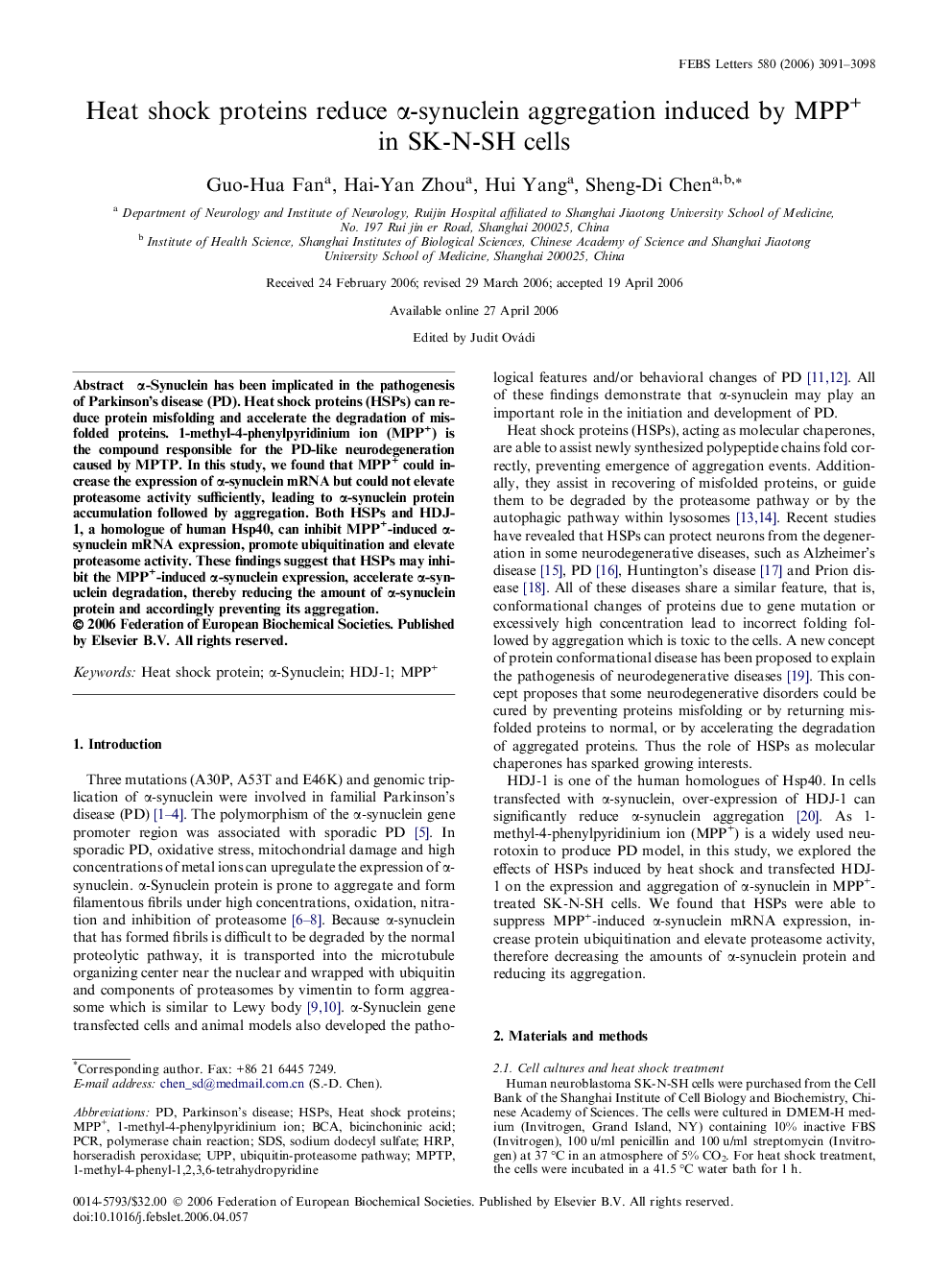| Article ID | Journal | Published Year | Pages | File Type |
|---|---|---|---|---|
| 2052591 | FEBS Letters | 2006 | 8 Pages |
α-Synuclein has been implicated in the pathogenesis of Parkinson’s disease (PD). Heat shock proteins (HSPs) can reduce protein misfolding and accelerate the degradation of misfolded proteins. 1-methyl-4-phenylpyridinium ion (MPP+) is the compound responsible for the PD-like neurodegeneration caused by MPTP. In this study, we found that MPP+ could increase the expression of α-synuclein mRNA but could not elevate proteasome activity sufficiently, leading to α-synuclein protein accumulation followed by aggregation. Both HSPs and HDJ-1, a homologue of human Hsp40, can inhibit MPP+-induced α-synuclein mRNA expression, promote ubiquitination and elevate proteasome activity. These findings suggest that HSPs may inhibit the MPP+-induced α-synuclein expression, accelerate α-synuclein degradation, thereby reducing the amount of α-synuclein protein and accordingly preventing its aggregation.
